These 13 Exfoliators Leave My Skin So Clear and Glowy, People Are Convinced I Have Weekly Facials
From exfoliating toners to radiance-boosting masks, I've tried all the best facial exfoliators out there—these are the ones I'd genuinely recommend.

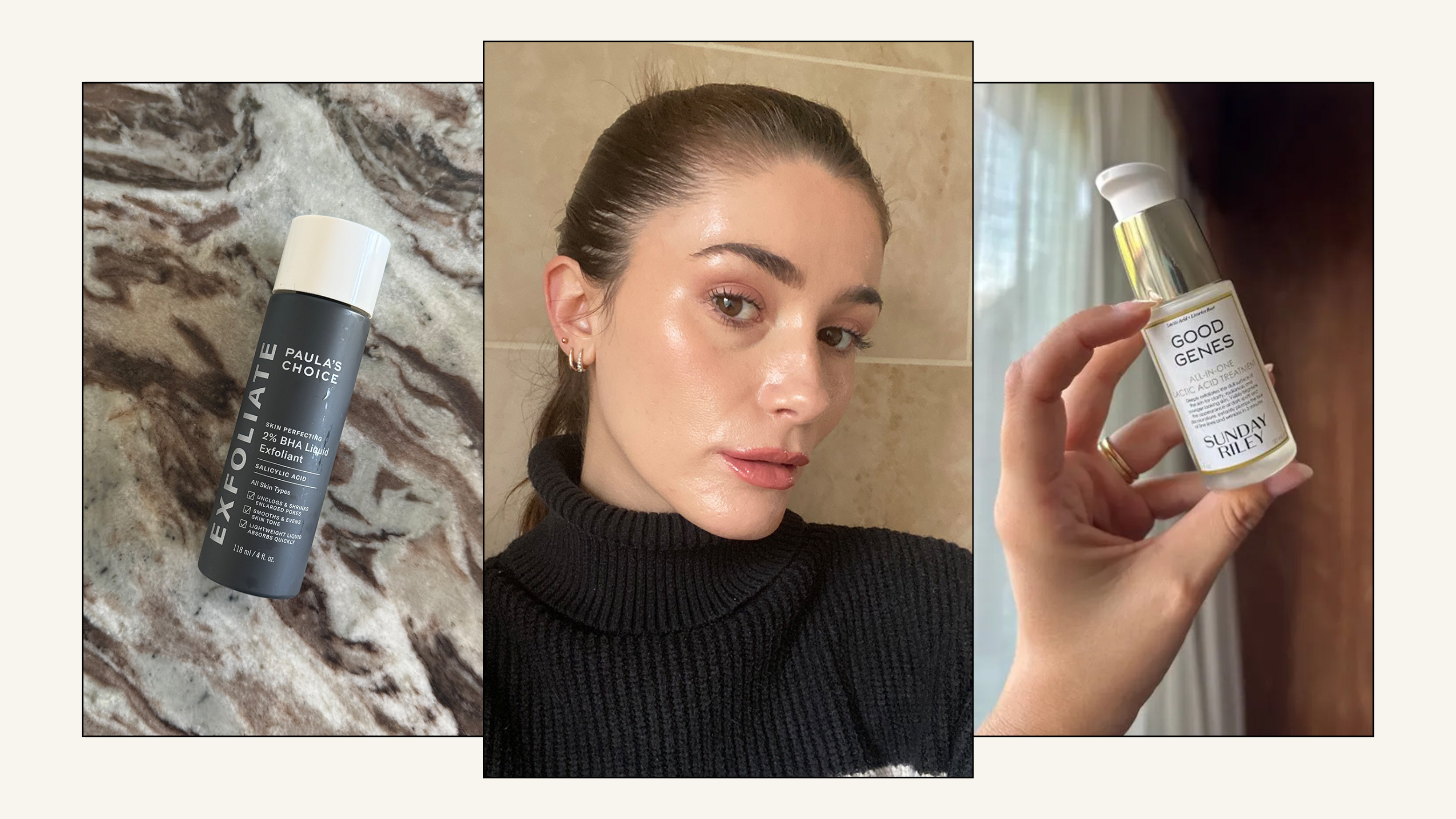
If there's one product that can cause much debate among beauty industry experts and skincare lovers, it's facial exfoliators. While it's generally hard to go wrong with most serums, cleansers or moisturisers, exfoliators can make or break your skincare routine.
Thankfully, we've come a long, long way from the gritty, physical scrubs that dominated the early 2000s (what were we thinking, rubbing walnut kernels on our skin?). Instead, dermatologists, estheticians and skin experts now favour chemical and enzyme exfoliants to get the job done and unlock clear, radiant and glowing skin.
You see, this new wave of facial exfoliators are far less abrasive and are often more efficacious than their physical counterparts, which can take their toll on your skin barrier. Especially if you have sensitive skin. That being said, it's still easy to overexfoliate in any skincare routine, which is why choosing the right exfoliator for your skin type—and knowing when and how to use it—is crucial (I.e. you'll always want to ensure you're extra diligent with your SPF whenever you're exfoliating your skin).
As a beauty editor working in the beauty industry for over a decade now, I've not only tested a lot of the best exfoliators, but I've also had first-hand recommendations from dermatologists, facialists and skin experts over the years who have helped to recommend and fine-tune the best exfoliators for every skin type and skin concern—and how to use them in your routine. Whether it be acne, pigmentation or dull skin, scroll ahead for all the best recommendations I've tested first hand that will unlock your best complexion yet.
Best Facial Exfoliators 2025

- Best Overall: Beauty Pie Dr Glycolic Pore-Purifying Glycolic Acid Toner (£15)
- Best Exfoliating Pads: Medicube Zero Pire Pad 2.0 (£24)
- Best For Acne: Paula's Choice Skin Perfecting2% BHA Liquid Exfoliant (£35)
- Best Affordable Exfoliator: The Ordinary Glycolic Acid 7% Toner (£7)
- Best For Sensitive Skin: Skin Rocks The Gentle Acid (£49)
1. Beauty Pie Dr Glycolic Pore-Purifying Glycolic Acid Toner
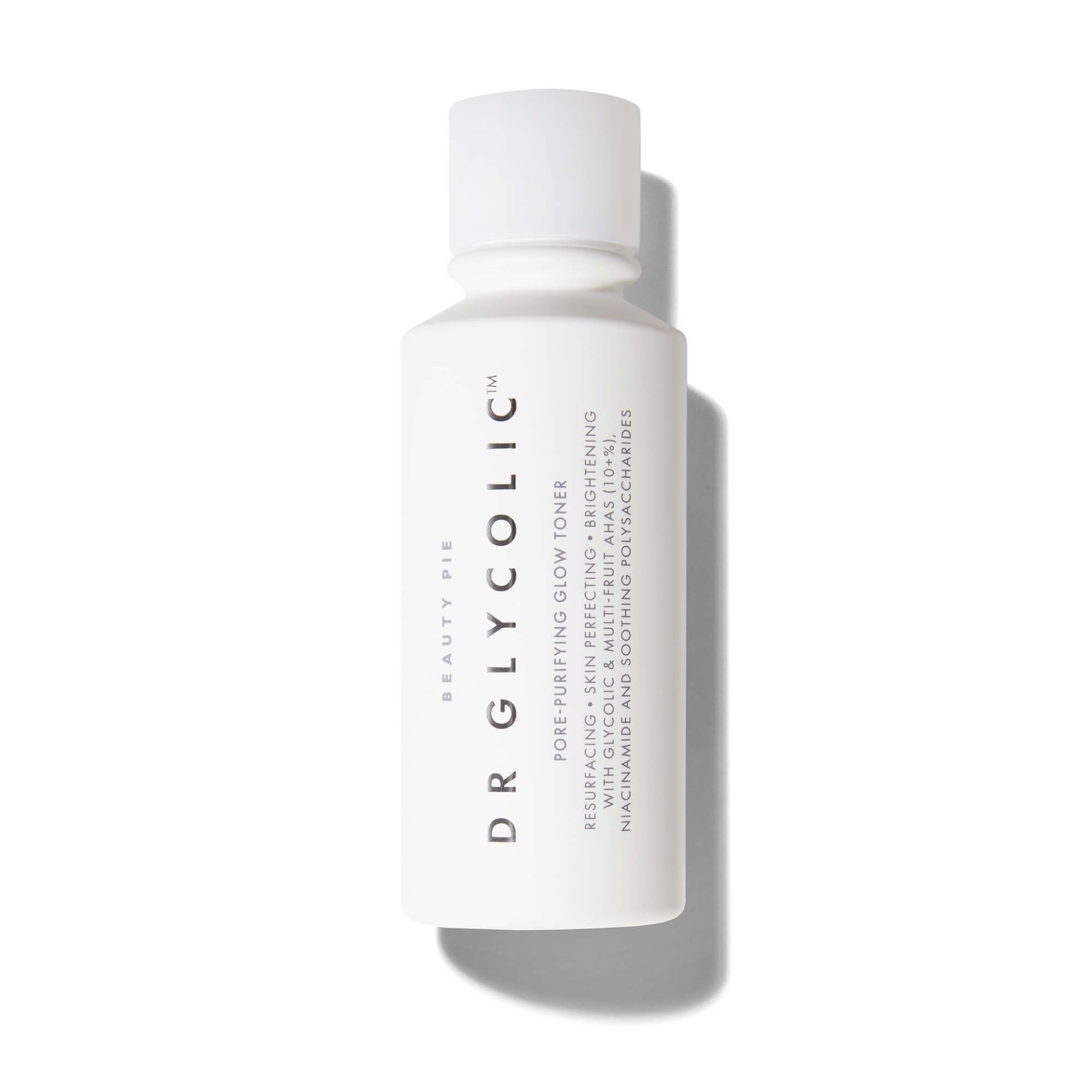
Pros
- Exfoliates and leaves skin glowing
- Suitable for all skin types
- Contains glycolic acid, niacinamide and fruit AHAs
Cons
- You need to be a member to access discounted prices
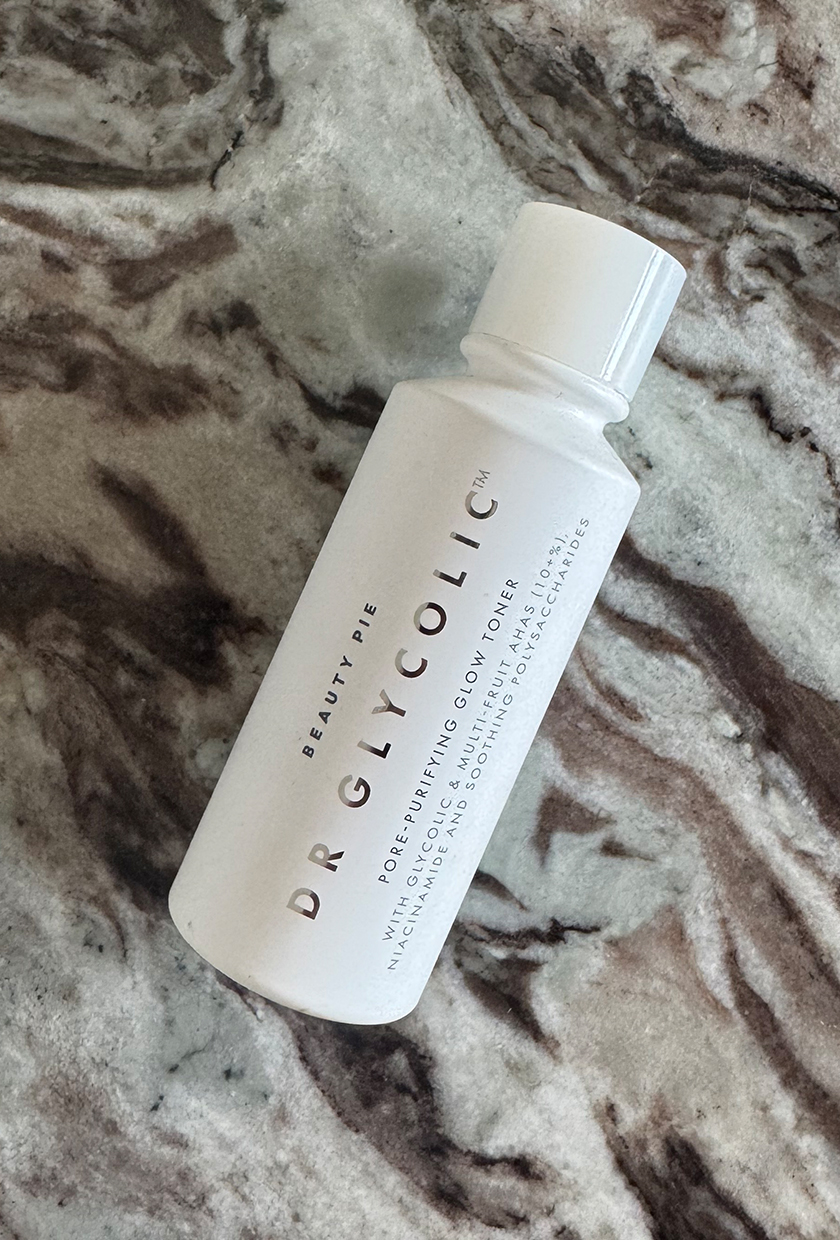
This Beauty Pie exfoliator is worth signing up for the membership alone. It's so good and is easily one of Beauty Pie's best products. The reason is that it does a little bit of everything and works for all skin types. I use it once or twice a week in the evenings, and when I wake up in the morning, I'm floored by how glowy my skin looks. Its hero ingredient is glycolic acid, which helps to brighten hyperpigmentation and dark spots, as well as exfoliating AHA fruit acids and niacinamide to balance the skin and smooth skin texture.
2. Medicube Zero Pore Pad 2.0
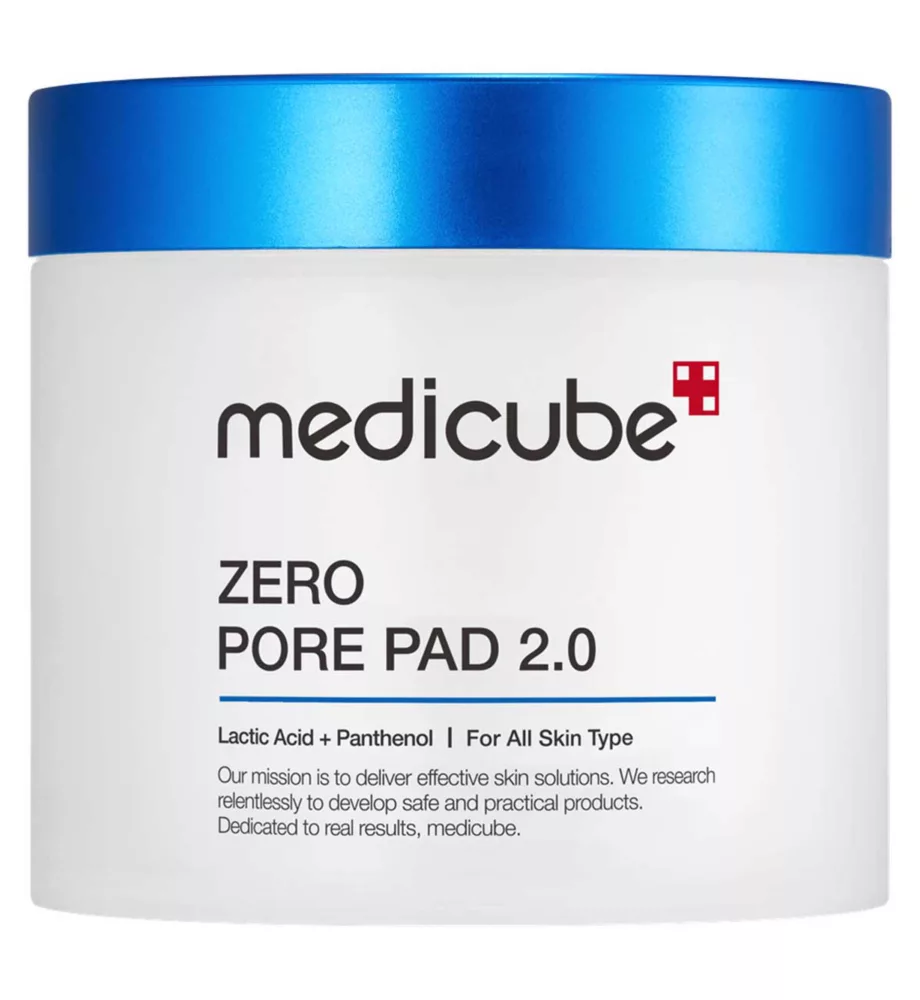
Pros
- Unclogs pores and prevents breakouts
- Also comes in a gentler version
- Easy to travel with
Cons
- Original version may be too strong for very sensitive skin
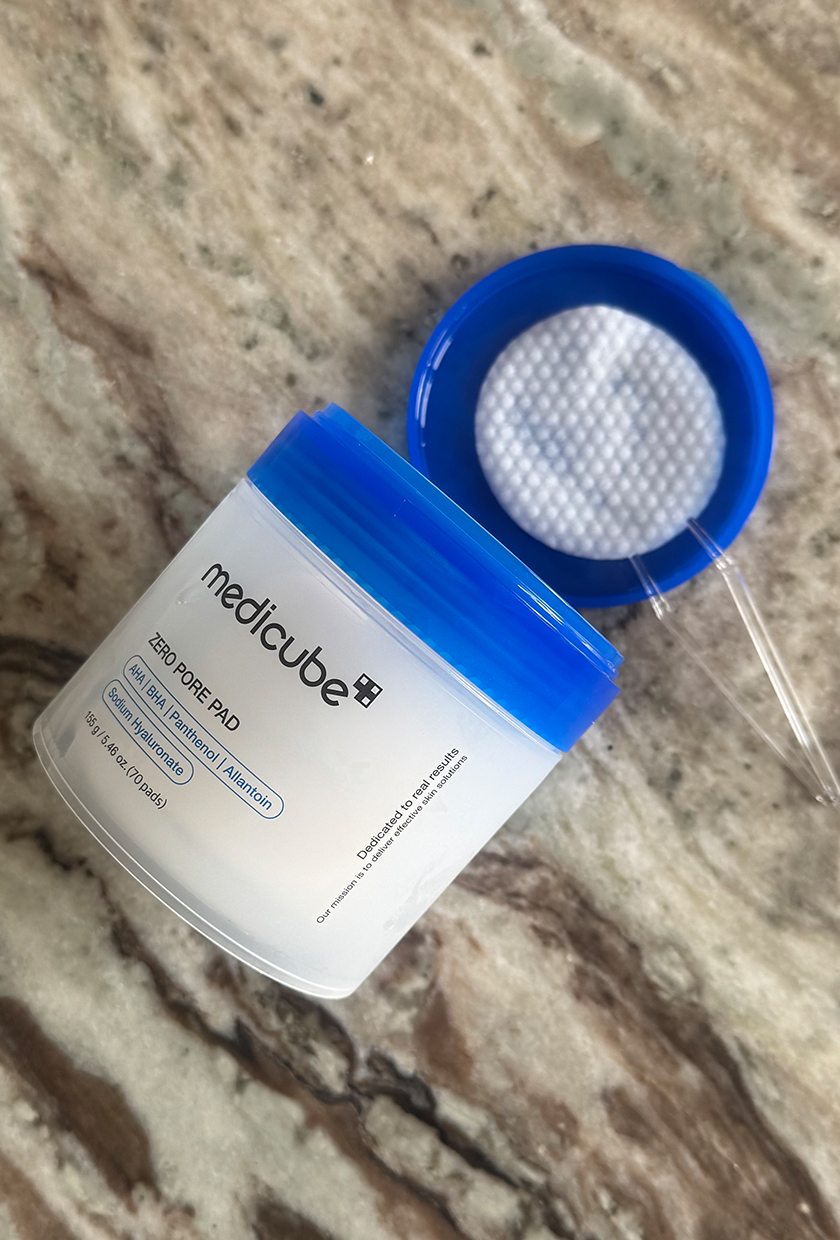
When I reviewed Medicube's products recently, these were among my top three products that are now permanently on my skincare shelf. These pre-soaked pads quench the skin with moisture while delivering a combo of exfoliating lactic acid and salicylic acid, which, in tandem, help to minimise the look of pores and clear and prevent breakouts. Since I've been using these, a friend commented on how my skin looked "poreless", and that's everything you need to know about how well these smooth skin texture and unclog pores. If you have very sensitive skin, there's also a milder version—the Zero Pore Pad Mild(£24)—that is gentler on the skin. You get 70 pads per jar, and they're great for travelling with too (no chance of suitcase explosions here).
3. Paula's Choice Skin Perfecting 2% BHA Liquid Exfoliant
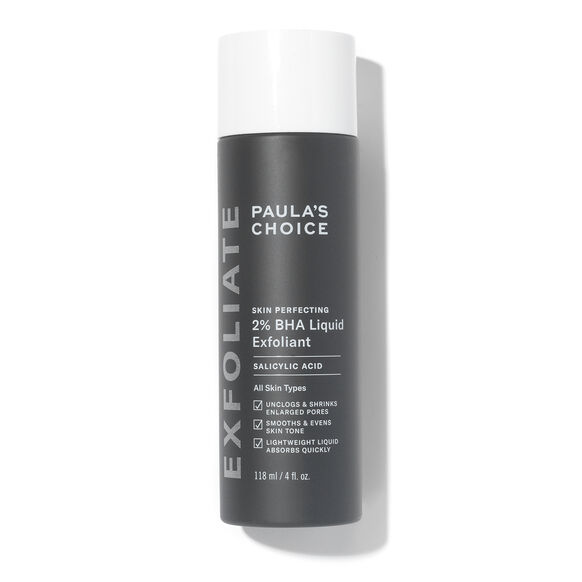
Pros
- Ideal for acne-prone and oily skin types
- Helps to reduce breakouts and unclogs pores
- Helps minimise blackheads and makes pores appear less noticeable
Cons
- May be too strong for very sensitive skin types if overused
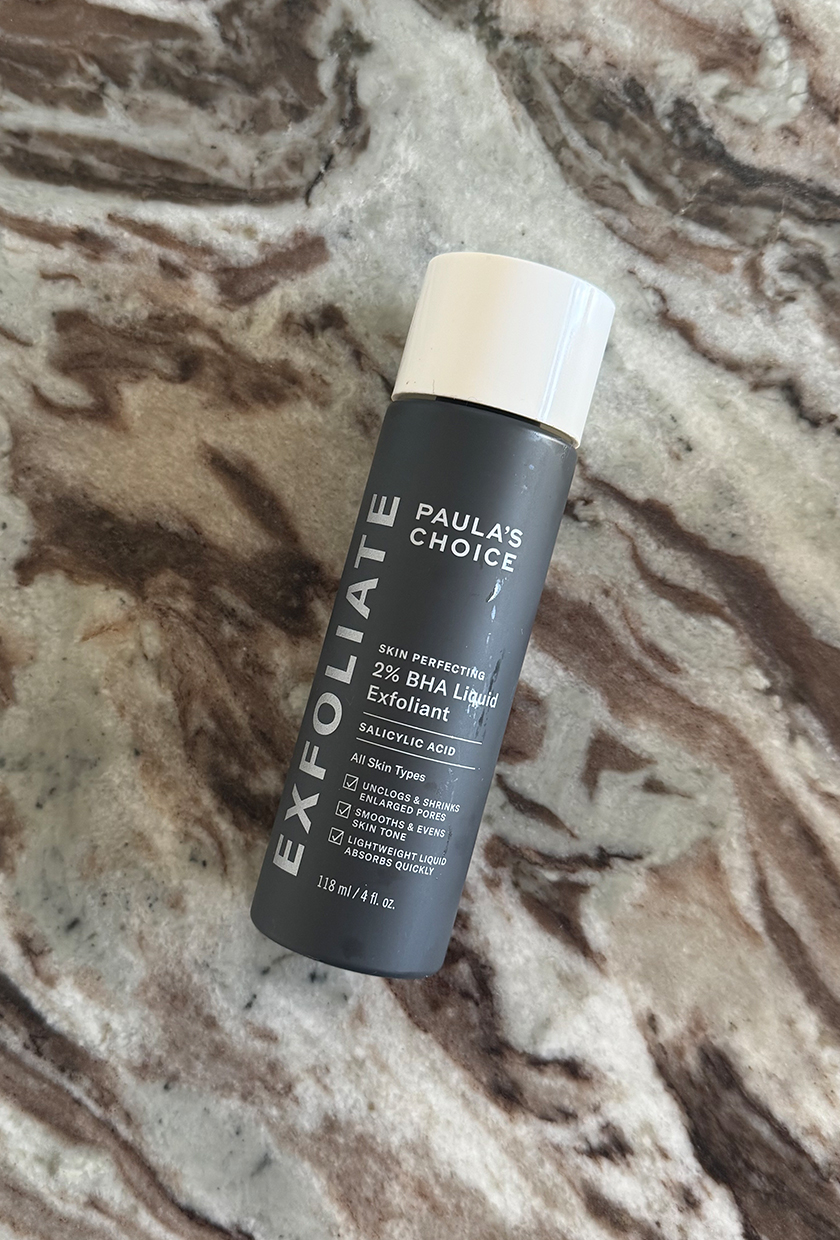
This iconic exfoliating toner needs no introduction—it's so good that it won a Who What Wear Next In Beauty Award. Formulated with salicylic acid, it helps to unclog congested pores, heal breakouts and prevent them from returning, making it perfect for oily, acne-prone skin or those who want to reduce stubborn blackheads that can appear around the nose. The lightweight liquid can be applied on a cotton pad and swept on the skin prior to applying your serum, moisturiser and SPF, and is gentle enough that it can be used twice a day, although if you're particularly sensitive, I'd recommend starting a couple of times a week and building up your skin's tolerance.
4. The Ordinary Glycolic Acid 7% Exfoliating Toner
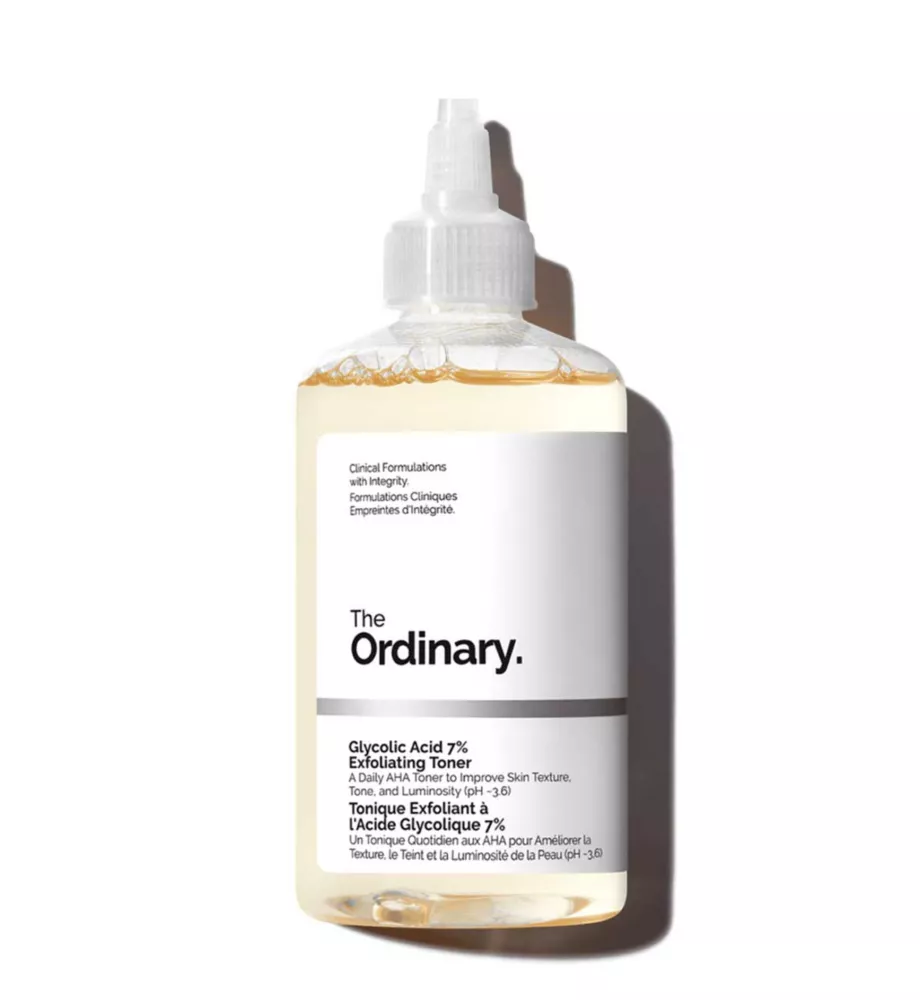
Pros
- Affordable
- Helps to exfoliate and unveil skin radiance
- Can also be used on the scalp to remove dry skin
Cons
- Can impair the skin barrier if used too often
Perhaps one of the most TikTok-viral beauty products ever, this exfoliating toner is one of The Ordinary's bestsellers and comes in at less than £12. It helps to refine skin texture, even the skin tone, and enhance your complexion's radiance. The 7% glycolic acid formula helps to nibble away at old, dull skin cells to reveal shiny new cells. underneath that leads to a glowing complexion. Plus, it's also good for addressing fine lines and wrinkles. What's more, it can even be used on the scalp to help prevent dryness without irritating the skin. I even know some people who use it on cracked heels too—it's a hardworking, multi-purpose product that everyone can benefit from in their routine.
5. Skin Rocks The Gentle Acid
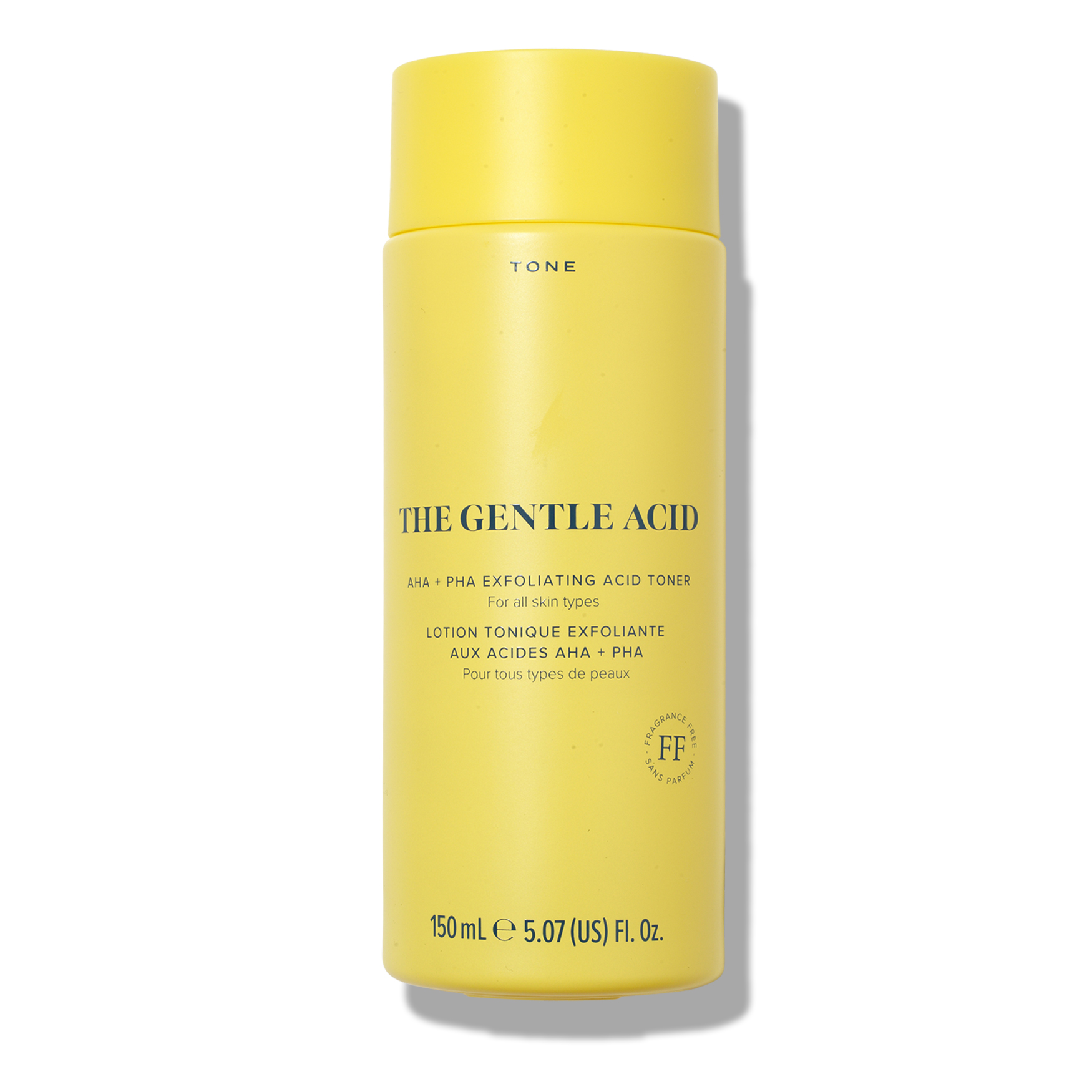
Pros
- Gentle enough for sensitive skin
- Leaves skin radiant, brightened and comfortable
Cons
- Those with breakout-prone skin may prefer The Control Acid
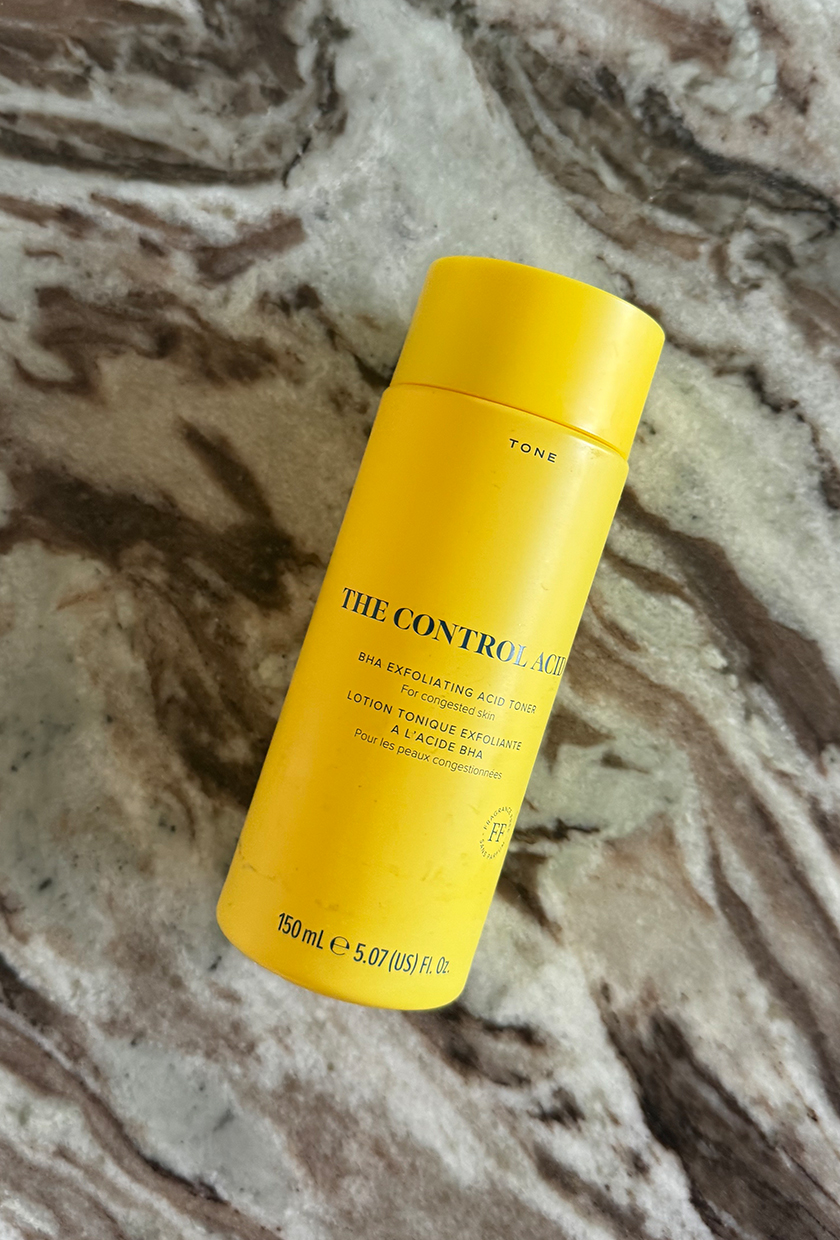
I wholeheartedly trust anything that Caroline Hirons creates, and this toner is no exception. She actually created two exfoliating acids: The Control Acid (£45), which is best for congested skin, and The Gentle Acid, pictured above, which is ideal for those who have sensitive skin or want an exfoliator that won't cause irritation. With alpha-hydroxy acids and polyhydroxy acids, it helps to refine skin texture, leaving it smooth, radiant and buttery while hydrating at the same time.
6. Medik8 Press & Glow Daily Exfoliating PHA Tonic
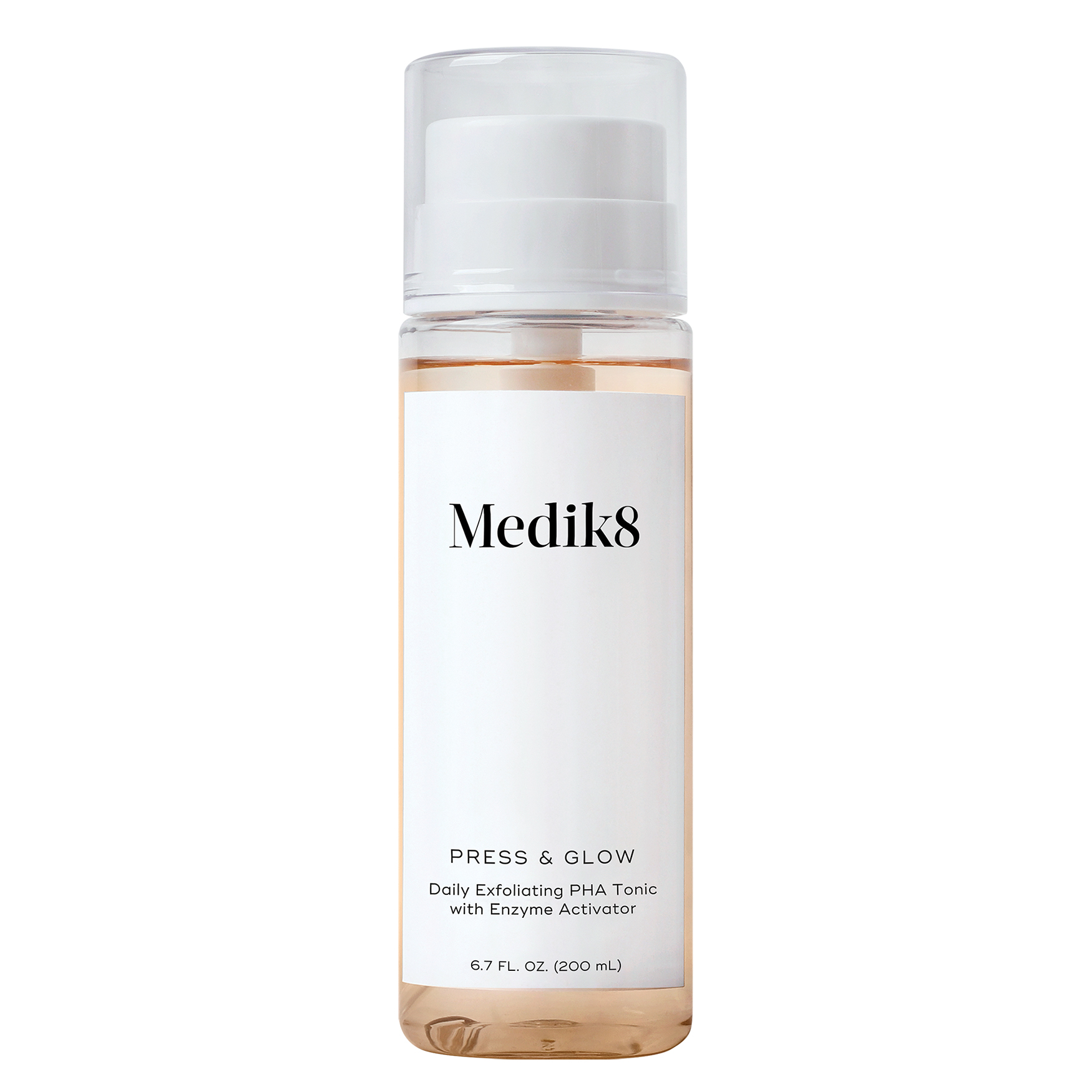
Pros
- Backed by skin experts
- Helps to brighten and aid radiance
- Gentle enough for sensitive skin
- Refills available
Cons
- Takes time to see results
What I love about Medik8's skincare is that the products just really work. Several facialists and skin experts have put me in the direction of this exfoliating toner, which is brilliant for evening the skin tone and fading stubborn hyperpigmentation, all while giving your skin a glow that rivals a facial. In fact, it's clinically proven to deliver glowing skin in just two weeks. It uses PHAs—which are more gentle exfoliating acids—alongside enzymes that nibble away at dead skin, making it a particularly good option for all skin types, but especially those with sensitive skin.
7. Sunday Riley Good Genes Lactic Acid Treatment
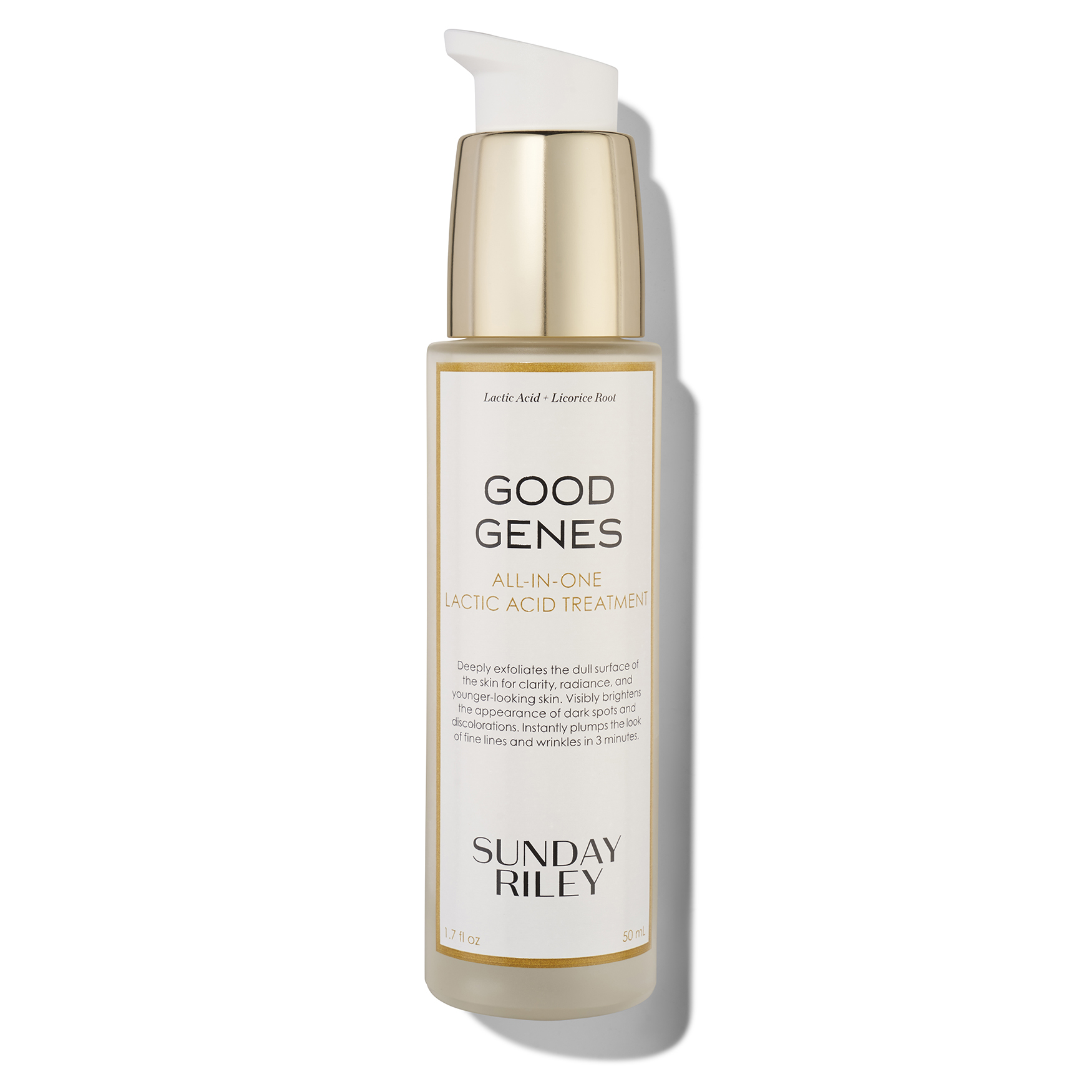
Pros
- Works immediately to brighten and smooth skin texture
- Helps to plump fine lines and wrinkles
- Fades pigmentation
Cons
- Expensive
- It's very tingly, so not ideal for sensitive skin
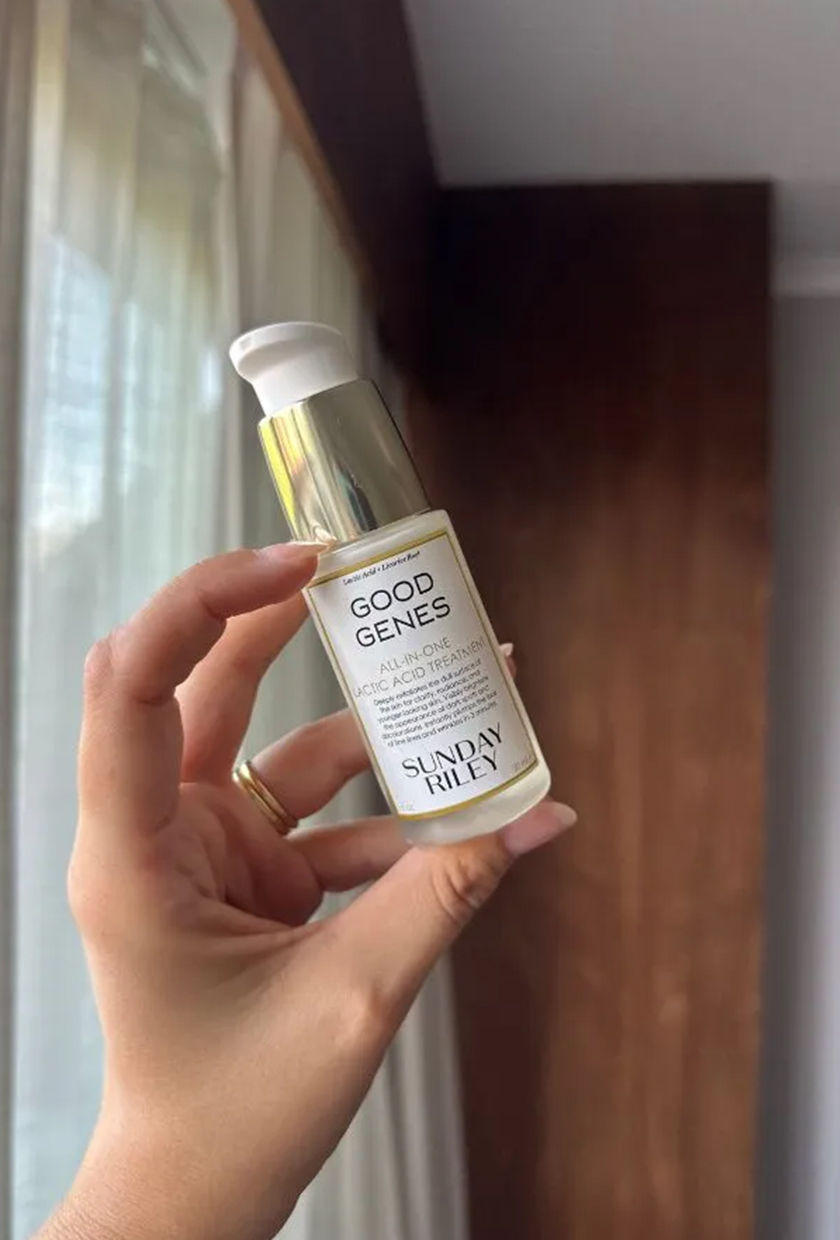
This is perhaps Sunday Riley's most-loved product, and for good reason. Good Genes is one of those cult serums that is loved by anyone who tries it—including our beauty director, Shannon Lawlor. "The glass-skin finish? Unrivalled. The smoothness? Exceptional. The even skin tone? Almost unbelievable," she says. If that description hasn't sold you, I don't know what will. The hero ingredient is lactic acid, which, alongside liquorice and lemongrass, helps to unveil a brighter, even-toned complexion each time you use it. There is a noticeable, satisfying tingle when you first apply it (there's no messing about—it gets straight to work), so it's not ideal for sensitive skin. But, on those occasions when you need a glow in an instant, this will never let you down.
8. Chanel N°1 De Chanel Revitalizing Mask
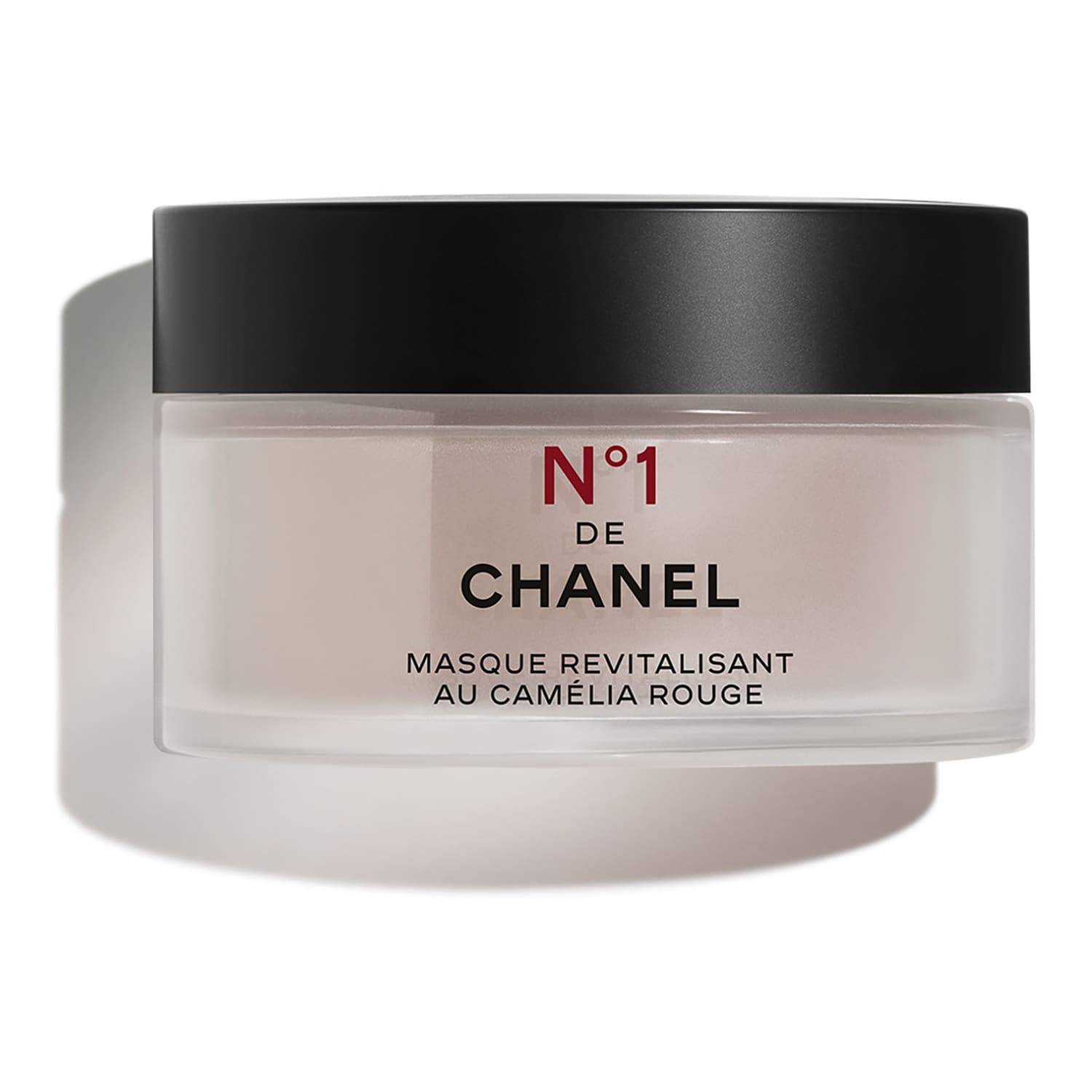
Pros
- Luxury formula
- Gets to work within 5 minutes
- Leaves skin radiant, smooth and plumped
Cons
- Has a premium price point to match the luxury formula
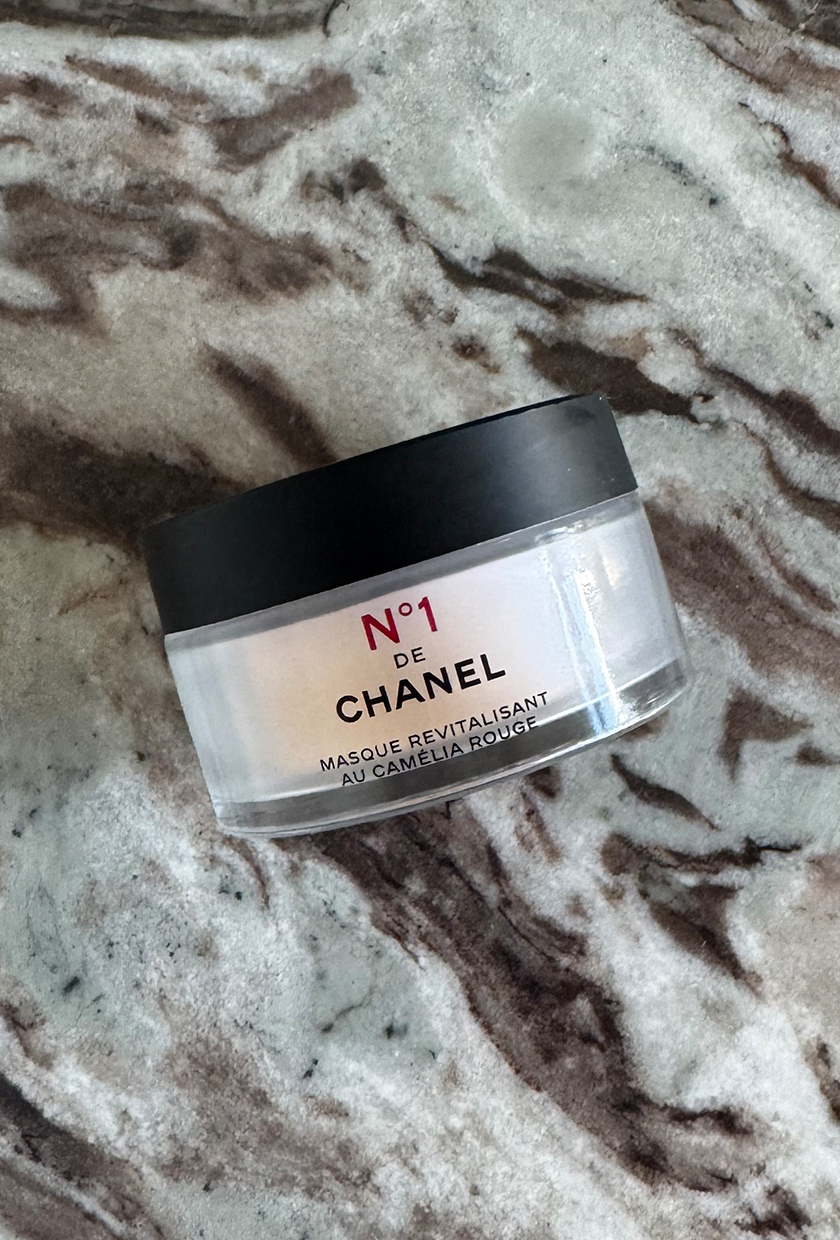
I'll be honest, I totally underestimated this face mask. From my very first application, I was struck by how luminous and glass-like my skin appeared (see the above picture of my skin at the start of this article). The formula combines exfoliating AHAs, which gently dissolve dead cells, with a refreshing gel texture that hydrates and plumps your skin. Just five minutes is all it takes, making it ideal for a quick radiance boost that will ensure your makeup applies like butter. While it is a considered investment purchase, the small amount needed per use means one jar lasts impressively long.
9. Rhode Pineapple Refresh
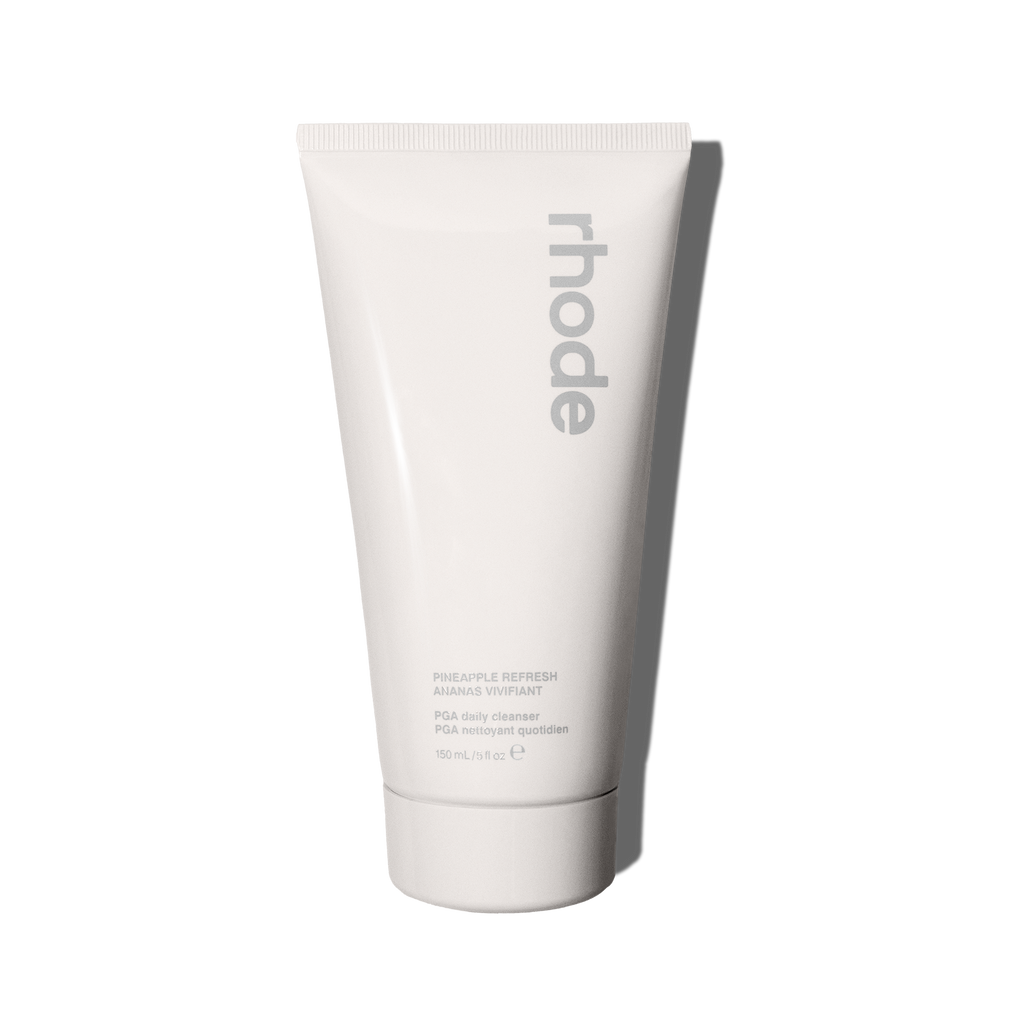
Pros
- Gently exfoliates while cleansing
- Leaves skin feel smooth and balanced
- Removes makeup and SPF easily
Cons
- Those who want stronger exfoliation may find this too mild
Sometimes, exfoliating little and often is better than using an overpowering formula, which is why I really love Rhode's cleanser. It contains pineapple enzymes, which, unlike a lot of exfoliating acids, tend to be more gentle on the skin. The gel texture melts into a gentle foam, while the enzymes gently buff away at dead skin, leaving your complexion feeling cleansed, comfortable and noticeably smoother after each time. My skin never feels stripped after using this, and it's effective enough at removing makeup, too.
10. Dermalogica Daily Microfoliant
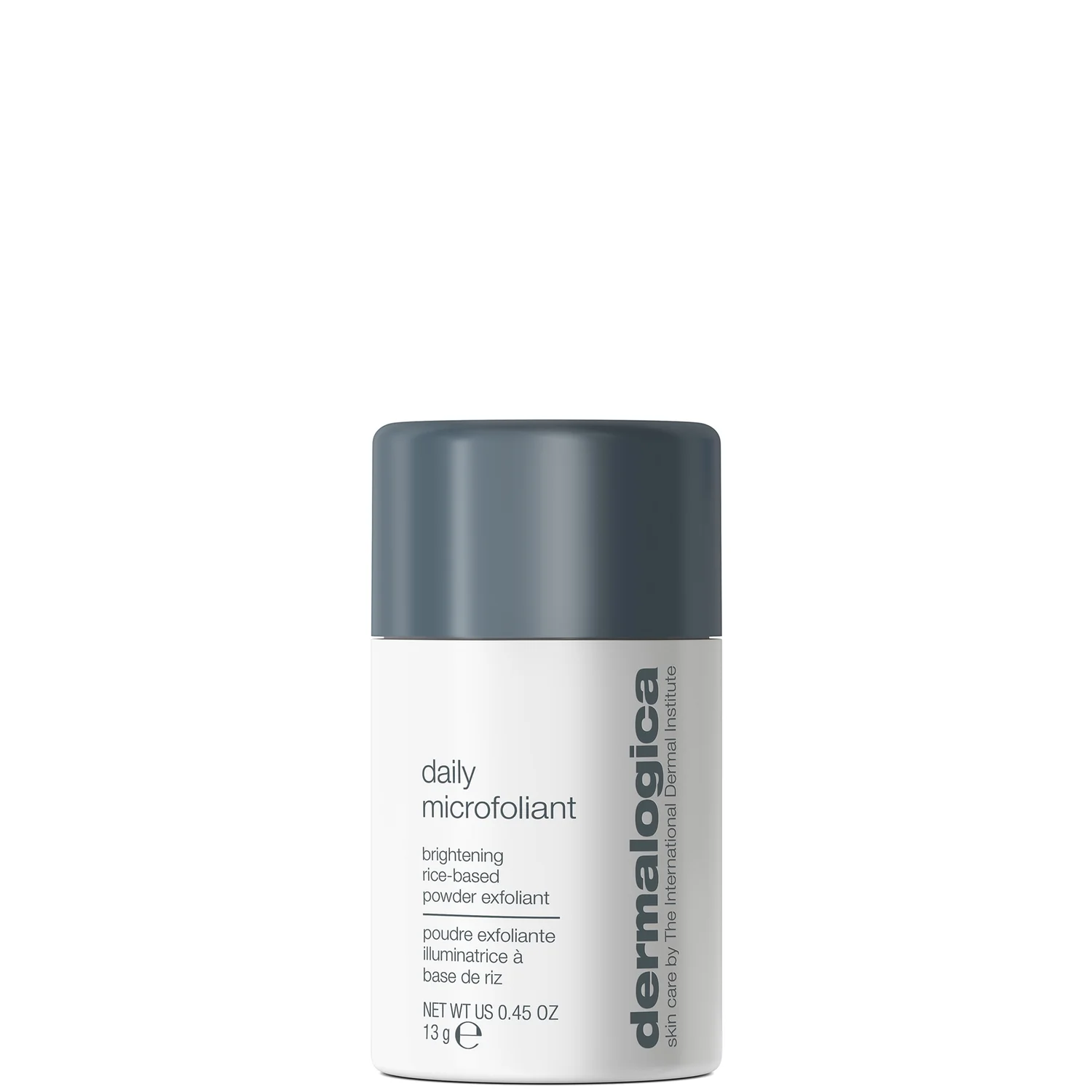
Pros
- Gently buffs away dead skin
- Mixes with water to form an exfoliating paste
Cons
- Powder can be messy
Okay, while the beauty industry collectively is largely against physical exfoliants nowadays, we have to make an exception for Dermalogica's Daily Microfoliant. This powder exfoliant comes in a powder form, which, when mixed with water, forms a paste with soft particles that gently buff away dead skin. It's the kind of exfoliator that's particularly good if you have dry patches that makeup clings to, as it gently polishes the skin to unveil softer, smoother skin underneath. It also contains salicylic acid, rice enzymes and colloidal oats to help boost skin radiance.
11. U Beauty Resurfacing Flash Peel
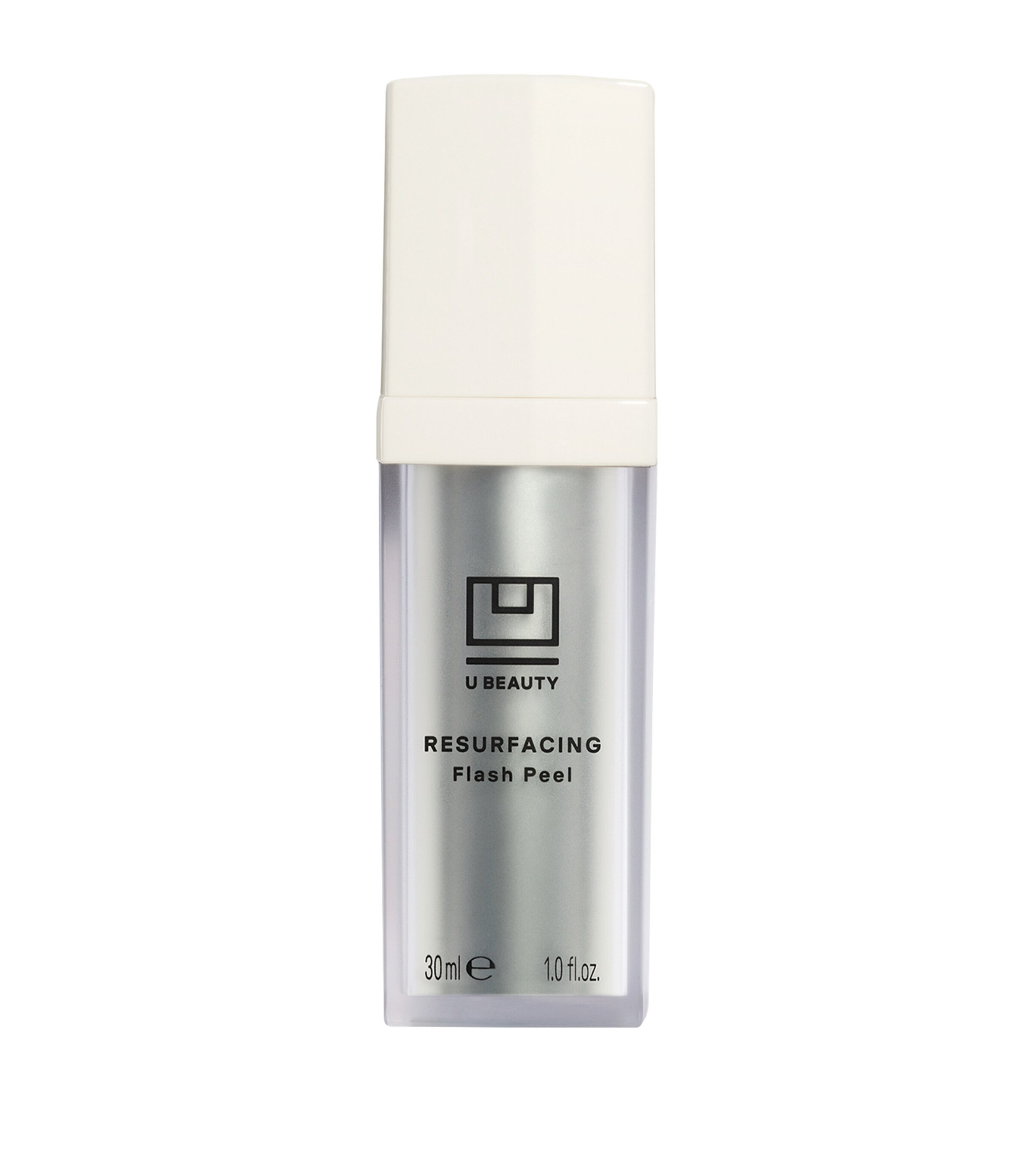
Pros
- Works in 5-10 minutes
- Reveals a brighter, glowing complexion
Cons
- It's eye-watering expensive
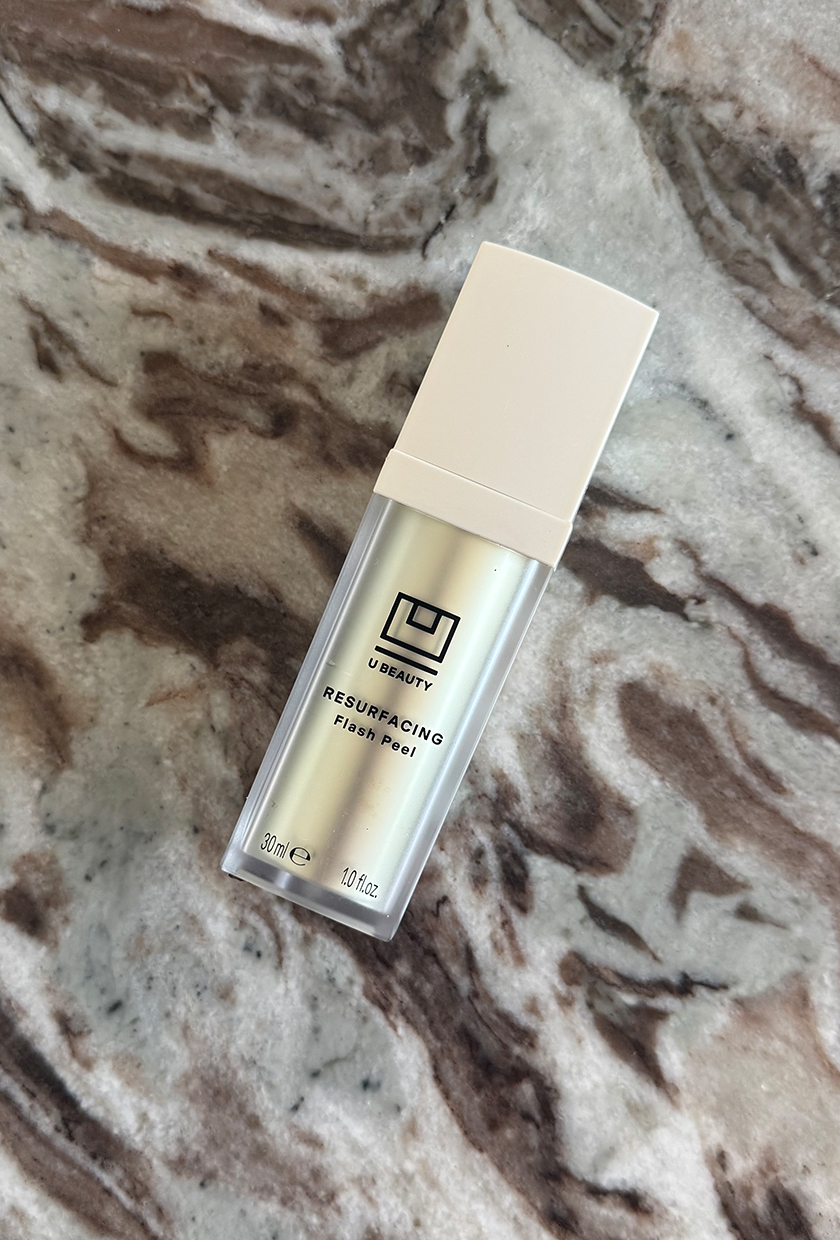
If you're prepared to splash the cash, then U Beauty's Resurfacing Flash Peel is a luxurious investment. This flash-treatment takes just 5-10 minutes, depending on how much exfoliation you require and leaves you with an incredibly glassy glow, thanks to a winning formula of fruit AHAs, glycolic acid and vitamins C and E. It's potent, so it should only be used once a week, and is best avoided on sensitive or irritated skin, but it's great for moments when you want a brighter, more radiant complexion, stat.
12. Kate Somerville Exfolikate Intensive Exfoliating Treatment
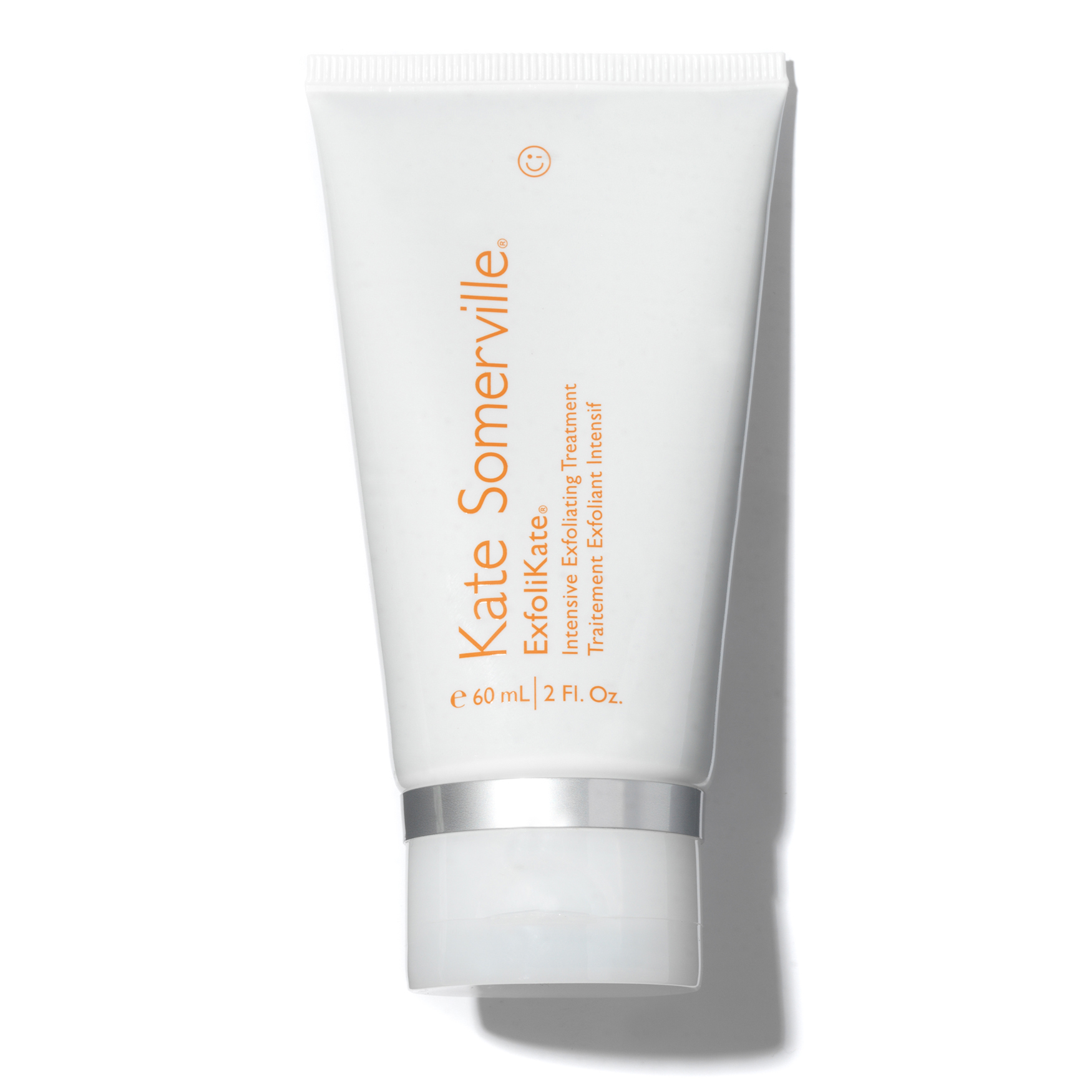
Cons
- May be too potent for sensitive skin
On days when your complexion needs intensive exfoliating, Kate Somerville's Exfolikate Intensive Exfoliating Treatment is the next best thing to one of her in-clinic treatments (it's referred to as Hollywood's two-minute facial). It's not for the faint-hearted (sensitive skin types, do scroll on), but it does an incredible job at resurfacing the skin by exfoliating dead skin and unlocking your glowiest skin yet. It has a slight granular texture, which, when combined with lactic acid, BHAs, AHAs and fruit enzymes, helps to noticeably smooth skin texture, minimise pores and plump wrinkles. You'll only need to use it a maximum of twice a week, and go easy on how long you leave it on your skin. I'd start with 30 seconds and work your way up to a minute or two if your skin can tolerate it.
13. Paula's Choice Skin Perfecting 6% Mandelic Acid + 2% Lactic Acid
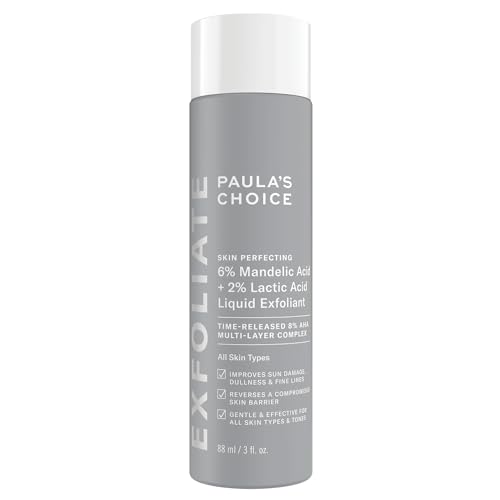
Pros
- Gentle enough for everyday use
- Brightens hyperpigmentation and plumps wrinkles
Cons
- Those with acne-prone skin may favour the original BHA formula
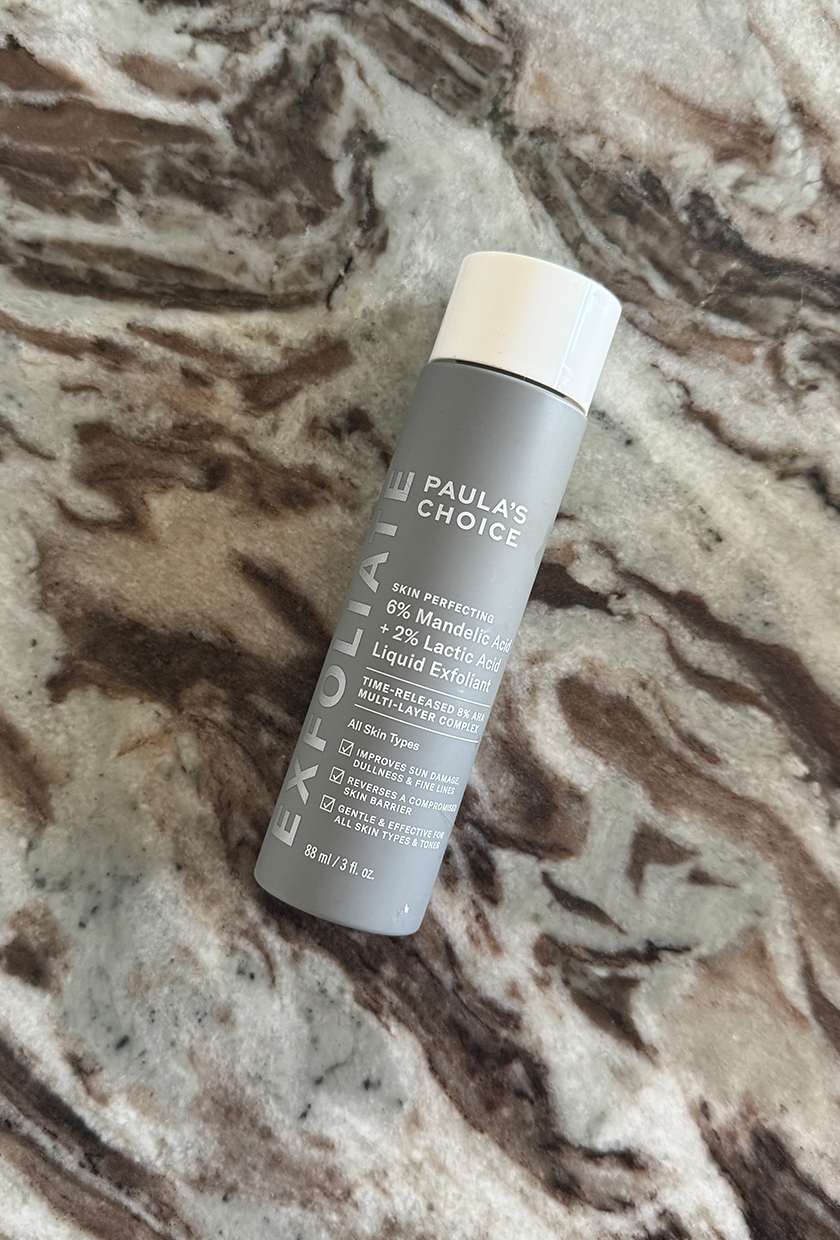
After the huge success of the Skin Perfecting 2% BHA Liquid Exfoliant, Paula's Choice brought out another liquid toner, but this time, with lactic acid and mandelic acid as the stars. While the former is better for acne-prone and oily skin types, this version helps to fade sun damage, eradicate dullness and plump fine lines. Lactic acid and mandelic acid have larger molecule sizes than other exfoliating acids, so if you found the original too strong, this is another great option to try for gentle exfoliation every day.
How to Use an Exfoliator
Depending on your skin concerns, and the strength of the exfoliator you're using, you can exfoliate your skin daily or once a twice a week. Exfoliating cleansers, toning pads or liquid exfoliants can typically be used daily, unless your skin is very sensitive. If you're using an exfoliating mask or a particularly potent serum, then you'll only need to use them 1-2 times per week for optimum results.
How We Tested
As a beauty editor with a decade of experience, I've tested all the best exfoliators that have come past our beauty desk. And having spent time speaking with dermatologists, facialists and skincare experts over the years, I've been schooled on the formulas and ingredients that not only work, but are best suited for different skin types. Whether you're oily and breakout-prone or have sensitive skin, there's an exfoliator here that will suit your needs.
Why Trust Us
At Who What Wear UK, we know that beauty isn’t one-size-fits-all. Our editors have tested thousands of products, including skincare, makeup, hair and nails, over the years and work closely with trusted experts—dermatologists, make-up artists and leading industry insiders—to ensure every guide is well-researched, inclusive and relevant to you.
We focus on formulas that deliver, whether they’re affordable favourites or luxury investments. Our product selection is based on tangible results, ingredient know-how and what we’d truly recommend to a friend.

Eleanor Vousden is the beauty editor for Who What Wear UK. She was previously deputy editor at Hairdressers Journal, health writer at Woman & Home and junior beauty editor at Powder. She has also contributed to Wallpaper and Elle Collections.
With a degree in fashion journalism from the London College of Fashion, she has 10 years of industry experience and has been highly commended at the BSME Talent Awards for her work on Powder and also contributed to the title winning Website of the Year at the PPA Awards.
Eleanor’s journalistic focus is providing readers with honest and helpful beauty content. She has interviewed celebrity makeup artists, hairstylists and dermatologists throughout her career, as well as celebrities such as Hailey Bieber, Sarah Jessica Parker and Scarlett Johansson.